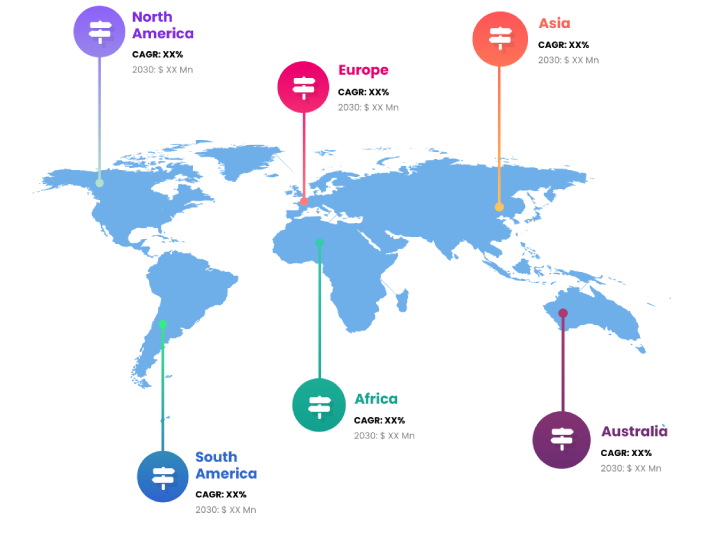In response to specific antigens, plasma cells produce an antibody, also referred to as immunoglobulin. In addition to performing diagnostic tasks, these antibodies have the potential to treat a wide range of ailments, such as cancer, autoimmune disorders, inflammatory & infectious diseases, and others. Therapeutic monoclonal antibodies are widely used in oncology, neurology, autoimmunology, and cardiology. As the prevalence of chronic diseases rises, it is projected that the global market for antibodies would expand. For instance, according to the World Health Organisation, there were 18.1 million new instances of cancer and 9.6 million cancer-related deaths worldwide in 2018. Antibodies can be used to treat a variety of neurological issues, autoimmune diseases, and cancer.
Around 4% of the world's population is affected by autoimmune diseases, according to the National Stem Cell Foundation (NSCF). The most common autoimmune diseases are rheumatoid arthritis, diabetes, MS, Crohn's disease, etc. As autoimmune diseases increase in prevalence, the demand for antibodies is anticipated to soar in the upcoming years. Cancer is becoming more common, and its high mortality rate has increased the demand for effective, narrowly focused therapies like antibody therapy. Recent developments in antibody-based therapeutics include targeting tumour antigens and enhancing immune cells' anti-tumor abilities. The market for antibody therapy is expected to grow as a result of the quickening pace of technological progress and product creation in the cancer treatment industry. Antibody therapy, a focused therapeutic intervention, uses a concentrated or monoclonal antibody to treat diseases like cancer, infectious disorders, autoimmune diseases, and others. The antibodies target a specific antigen that, among other biological responses, either activates or inhibits a number of biological reactions, such as preventing the spread of cancer or triggering the immune system.

Report Coverage
Global Antibodies research report categorizes the market for global based on various segments and regions, forecasts revenue growth, and analyzes trends in each submarket. Global Antibodies report analyses the key growth drivers, opportunities, and challenges influencing the global market. Recent market developments and Antibodies competitive strategies such as expansion, product launch and development, partnership, merger, and acquisition have been included to draw the competitive landscape in the market. The report strategically identifies and profiles the key Antibodies market players and analyses their core competencies in each global market sub-segments.
| REPORT ATTRIBUTES | DETAILS |
|---|---|
| Study Period | 2017-2030 |
| Base Year | 2020 |
| Forecast Period | 2022-2030 |
| Historical Period | 2017-2019 |
| Unit | Value (USD Billion) |
| Key Companies Profiled | Abcam Plc., Merck KGaA, Thermo Fisher Scientific, Inc., Cell Signalling Technology, Inc., Santa Cruz Biotechnology Inc., PerkinElmer, Inc., Becton, Dickinson and Company, Bio-Techne Corporation, Proteintech Group, Inc., and Jackson ImmunoResearch Inc. |
| Segments Covered | • By Product |
| Customization Scope | Free report customization (equivalent to up to 3 analyst working days) with purchase. Addition or alteration to country, regional & segment scope |
Key Points Covered in the Report
- Market Revenue of Antibodies Market from 2021 to 2030.
- Market Forecast for Antibodies Market from 2021 to 2030.
- Regional Market Share and Revenue from 2021 to 2030.
- Country Market share within region from 2021 to 2030.
- Key Type and Application Revenue and forecast.
- Company Market Share Analysis, Antibodies competitive scenario, ranking, and detailed company
profiles. - Market driver, restraints, and detailed COVID-19 impact on Antibodies
Market
Competitive Environment:
The research provides an accurate study of the major organisations and companies operating in the global Antibodies market, along with a comparative evaluation based on their product portfolios, corporate summaries, geographic reach, business plans, Antibodies market shares in specific segments, and SWOT analyses. A detailed analysis of the firms' recent news and developments, such as product development, inventions, joint ventures, partnerships, mergers and acquisitions, strategic alliances, and other activities, is also included in the study. This makes it possible to assess the level of market competition as a whole.
List of Major Market Participants
Abcam Plc., Merck KGaA, Thermo Fisher Scientific, Inc., Cell Signalling Technology, Inc., Santa Cruz Biotechnology Inc., PerkinElmer, Inc., Becton, Dickinson and Company, Bio-Techne Corporation, Proteintech Group, Inc., and Jackson ImmunoResearch Inc.
Primary Target Market
- Market Players of Antibodies
- Investors
- End-users
- Government Authorities
- Consulting And Research Firm
- Venture capitalists
- Third-party knowledge providers
- Value-Added Resellers (VARs)
Market Segment:
This study forecasts global, regional, and country revenue from 2019 to 2030. Spherical Insights has segmented the global Antibodies market based on the below-mentioned segments:
Global Antibodies Market, By Type
- Monoclonal Antibodies [mAbs] {Oncology, Autoimmune Diseases, Infectious Diseases},
- Antibody-drug Conjugates [ADCs]
Global Antibodies market, By Application
- Hospitals
- Specialty Centers
Global Antibodies market, Regional Analysis
- Europe: Germany, Uk, France, Italy, Spain, Russia, Rest of Europe
- The Asia Pacific: China,Japan,India,South Korea,Australia,Rest of Asia Pacific
- South America: Brazil, Argentina, Rest of South America
- Middle East & Africa: UAE, Saudi Arabia, Qatar, South Africa, Rest of Middle East & Africa
You will get in-depth and extensive antibodies market market research and competitor analysis for your business to help you develop more profound insights into the antibodies market Market.
Through INFINITIVE Data Expert is a professional Market Research services, I will identify the antibodies market market size, demand & opportunities, growth rate, and target audience with a comprehensive analysis of your competitors.



![Antibodies Market Size, Industry Analysis By Type (Monoclonal Antibodies [mAbs] {Oncology, Autoimmune Diseases, Infectious Diseases}, and Antibody-drug Conjugates [ADCs]), By End-user (Hospitals, and Specialty Centers) – Global, Trends, Share And Forecast 2023-2030](https://www.infinitivedataexpert.com/assets/img/infinitive-Report-Cover.png)